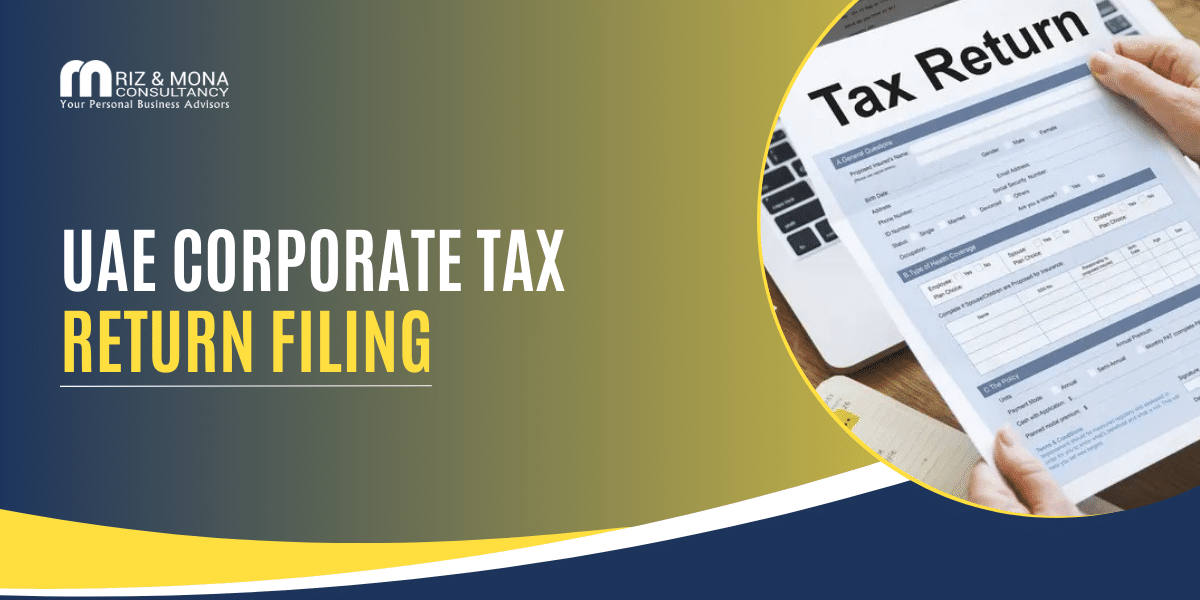Corporate Tax Registration in the UAE
Once you’ve identified your tax obligations and deductible expenses, the next step is corporate tax registration. The UAE Federal Tax Authority (FTA) requires businesses meeting specific criteria to register and obtain a Tax Registration Number (TRN). Without registration, businesses cannot file returns or comply with tax laws, and non-compliance can lead to penalties.
Who Needs to File Corporate Tax Returns in the UAE?
- Businesses with taxable income exceeding AED 375,000 → Subject to a 9% corporate tax and must file tax returns.
- Foreign companies with a permanent establishment (PE) in the UAE → If a foreign company conducts substantial business in the UAE, it must comply with corporate tax laws.
- Multinational corporations with revenue exceeding EUR 750 million → May be subject to a different tax rate under international tax rules.
- Freelancers and self-employed individuals earning over AED 375,000 annually → If registered as a business, they must file tax returns.
- Businesses earning AED 375,000 or less → No corporate tax applies, but filing may still be necessary.
- Government entities and government-controlled businesses → Exempt unless engaged in taxable activities.
- Businesses operating in qualifying free zones → Free zone entities can benefit from 0% tax, provided they meet all compliance requirements.
- Non-resident companies without a permanent establishment → If a foreign company earns income from the UAE without having a physical presence, corporate tax may not apply.
- Companies engaged in extractive industries → Businesses in oil, gas, and natural resource extraction may follow separate taxation rules governed by emirate-level regulations.
Even businesses that qualify for exemptions may still need to file tax returns or submit declarations confirming their tax-exempt status. The requirements depend on the specific business structure and activities.
Ways to Reduce Corporate Tax Liability in the UAE
Take Advantage of Small Business Relief
Businesses with revenue below AED 3 million may qualify for Small Business Relief, which means they won’t have to pay corporate tax until their revenue exceeds this threshold. It’s important to check if your business meets the criteria and plan financial reporting accordingly.
Benefit from Free Zone Tax Incentives
Companies operating in Qualifying Free Zones can get a 0% corporate tax rate on certain income. However, they must ensure they meet the Federal Tax Authority’s conditions and avoid transactions that could make them ineligible.
Claim All Eligible Business Expenses
Every deduction lowers taxable profit, so businesses should ensure they claim all eligible expenses. Costs such as rent, salaries, utilities, and marketing should be properly recorded. Keeping personal and business expenses separate is also essential to avoid compliance issues.
Follow Proper Transfer Pricing for Multinationals
For multinational companies, setting fair prices for transactions between related entities is crucial. Following OECD transfer pricing guidelines and maintaining proper records can prevent tax disputes and penalties.
Use Foreign Tax Credits
Businesses that pay taxes abroad on income taxable in the UAE can claim foreign tax credits to reduce their local tax liability. Keeping detailed records of foreign tax payments and making use of tax treaties can prevent double taxation.
Plan Profit Distribution Wisely
Corporate tax applies to business profits, but shareholder distributions are not taxed. Instead of increasing salaries (which are taxable business expenses), companies may consider distributing earnings through dividends. Reinvesting profits in business growth can also help lower taxable income.
Start Your Business Journey with Our Professional Support!
Filing Corporate Tax Returns in the UAE
Corporate tax returns must be filed electronically through the EmaraTax portal by following these steps:
- Log in to the EmaraTax system.
- Select the relevant tax period and complete the return form.
- Enter financial details, including revenue, deductible expenses, and taxable profits.
- Attach supporting documents if required.
- Review the submission and ensure all figures are accurate.
- Submit the return before the deadline.
- Corporate tax returns must be filed within 9 months after the end of the relevant financial year.
- Businesses with different financial year-end dates must adhere to their specific deadlines.
- Late filing → Leads to fines and tax compliance risks.
- Incorrect income reporting → Can trigger audits and penalties.
- Failure to submit supporting documents when required.
Contents of a Corporate Tax Return
Filing a corporate tax return isn’t just about declaring profits and paying taxes. The UAE corporate tax law requires businesses to submit a structured return that includes specific financial details, adjustments, and supporting documents. Here’s what must be reported:
FAQS (Frequently Asked Questions)
How does corporate tax impact businesses with international operations?
Businesses with cross-border transactions must consider foreign tax credits, transfer pricing rules, and double taxation treaties to optimize tax liability.
Can businesses amend their corporate tax return after submission?
If a company discovers errors in its tax return, it may need to file a voluntary disclosure through the EmaraTax portal, subject to FTA approval and potential penalties.
What role does financial auditing play in corporate tax compliance?
While not all businesses are required to submit audited financials, maintaining IFRS-compliant records helps ensure accurate tax filing and minimizes audit risks.
How does UAE corporate tax affect startups and SMEs?
Startups with revenue below AED 3 million may qualify for Small Business Relief, deferring tax liability, while growing SMEs must plan for tax obligations as they scale.
What are the key risks of non-compliance with corporate tax regulations?
Late filing, underreporting income, or failing to maintain records can result in fines, audits, and potential legal action from the Federal Tax Authority (FTA).













